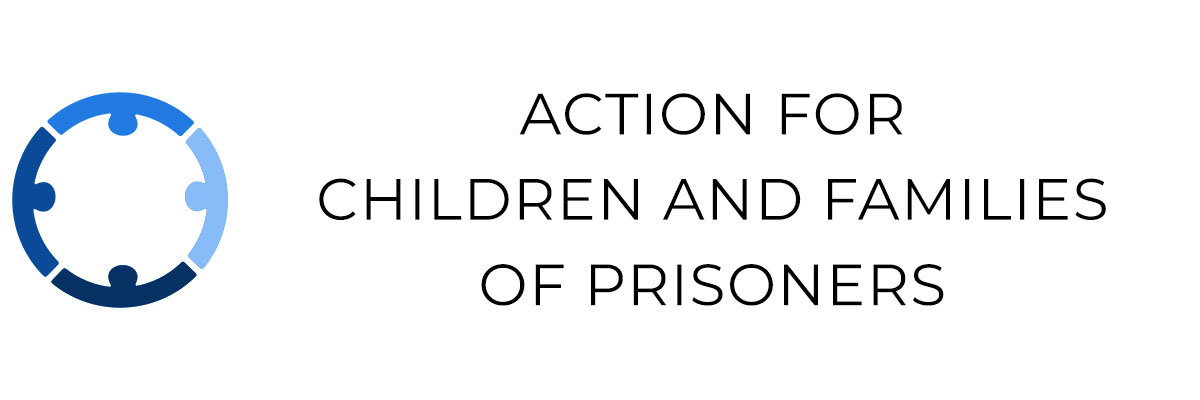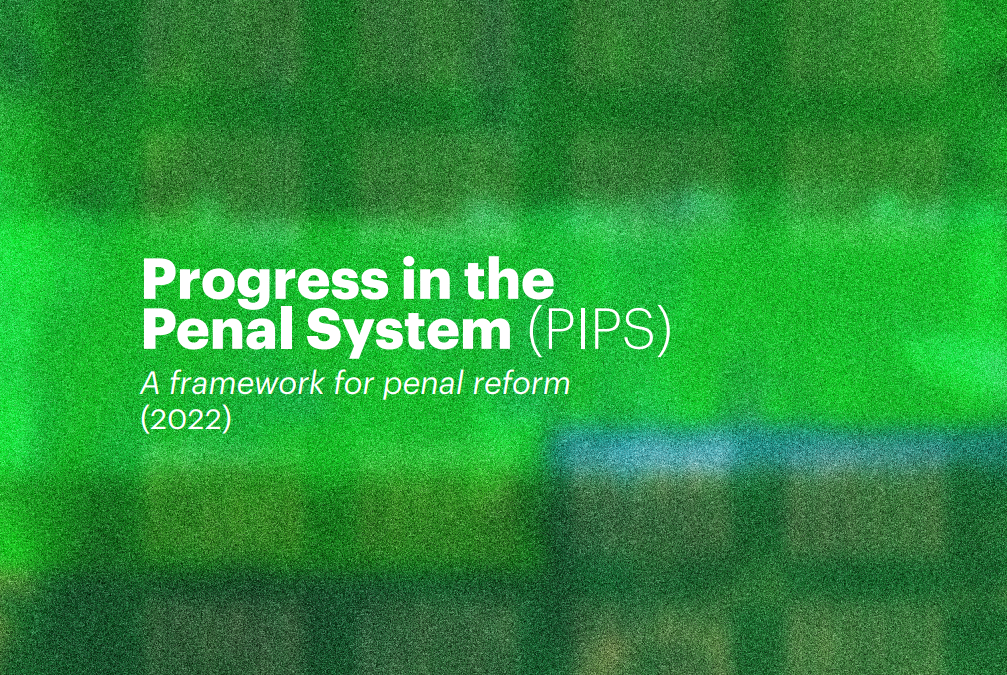Over the last number of months, IPRT have been actively campaigning and advocating for children and families of people in prison. Since the publication of Maternal Imprisonment in Ireland: A Scoping Study published in March 2023, IPRT has continued to advocate for children and families of people in prison across wider policy and campaigns in the organisation.
Progress in the Penal System (PIPS): A framework for penal reform (2022) was launched in May 2023. IPRT’s PIPS 2022 reviewed 35 recommendations, with Standards 11, 15, 34 and 35 looking at progress in the penal system relating to action for children and families of people in prison. The spotlight standard also focused on women in the penal system under standard 32.1.
Below is an overview of those areas pertaining to action for children and families of people in prison. The fully referenced PIPS 2022 report is available here.
PIPS 2022 Spotlight standard | Standard 32.1: Women in the penal system
A gender-sensitive approach should be adopted across the criminal justice system to respond to the distinct needs of women who offend.
This ‘Spotlight’ was guided by the experiences of women who have been in contact with the criminal justice system.
Women have a unique set of needs that require a distinct set of responses. It is widely documented and understood that much of the offending behaviour by women is a result of unmet social needs and an absence of appropriate services in the community, with women in prison in Ireland among the most marginalised women in the state. The majority of women committed to prison in Ireland are committed on a short-term basis (e.g. less than a year) for non-violent offences. In many cases, not only are short sentences ineffective in addressing the underlying cause of the offending behaviour, but they can also aggravate vulnerabilities. A custodial sentence can cause enormous disruption to the lives of women and their families, breaking links with employment, stable housing, and contact with dependents and family.
Additionally, some women may also find themselves imprisoned while pregnant. While pregnant women should only be imprisoned in absolutely compelling circumstances, there were between 15 and 21 incidences of pregnant women receiving care in Irish prisons annually. However, during the same period, the number of babies born in prison ranged from zero to two.
The PIPS 2022 report outlined how women’s caregiving responsibilities and their children’s best interests are often overlooked at the point of sentencing, despite many women in prison being mothers and carers. This can have serious negative emotional consequences for themselves, their children, and their families. In a recent study with 122 women in prison (out of 126 total at the time of the research), 98 women (78%) reported that they were mothers to both young and adult children. Of these mothers, 62 participated in further research and had a total of 148 children, with 73% (108) being under 18 and 27% (40) being 18 or older. Many of the women had been separated from their children before they were imprisoned, for multi-faceted reasons including drug addiction, domestic violence, prior imprisonment, and mental illness.
Those who received visits from their children described negative experiences such as long journeys, wait times, and searches, leading to their children’s reluctance to return. The PIPS 2022 report found that aside from this study, there has been limited examination of the experiences of mothers imprisoned in Ireland and their children.
It highlighted that there are gaps in data in this area. For example, details of the number of women in prison who have children who are in the care of Tusla, or the number of women in prison who have children who are in the care of relatives or family friends, are not currently collated. Measures to address the impact of imprisonment on mothers and their children could include ensuring that pre-sentence reports produced by the Probation Service include full details as to the individual’s family circumstances; the introduction of guidelines that require judges to consider family circumstances/caretaking responsibilities when deciding a sentence; and expanding the availability of credible alternatives to custody, particularly those designed to cater for the needs of women.
In addition to imprisonment, post-imprisonment found that family reunification was among the biggest challenges faced by women on release from prison, and the size and location of any accommodation is a key factor in supporting this. In instances where accommodation is available to women, efforts should be made to ensure that it appropriately meets the needs of women and their children.
The spotlight concluded that there has been a longstanding acknowledgement of the complex needs and vulnerabilities of women entering the criminal justice system in Ireland. Prison is not the solution to the needs of women living chaotic and difficult lives who engage in low level offences. A non-custodial approach should be adopted for women; and in the few cases where prison is necessary, the negative impact of imprisonment on women and their families should be minimised. While the needs of women in contact with the criminal justice system are nuanced, and the solutions to addressing these needs will require substantial resources, with joined-up action, research, and implementation, these needs can and should be met.
Among other recommendations, the PIPS 2022 report recommended:
That the impact of maternal imprisonment should be considered by sentencing judges. Where prison is deemed the only appropriate option, contact between women and their families, particularly their children, should be facilitated and encouraged.
Standard 11: Family Contact
Every prisoner is encouraged and facilitated to maintain positive family and close, significant relationships.
The PIPS 2022 report identified that while children and families should not be held responsible for the successful reintegration of their family member, maintaining close relationships and positive family contact is a crucial factor in the rehabilitation process.
In December 2022, access to physical visits was restored to pre-pandemic levels (one physical visit per week of 30 minutes duration) across the prison estate. As of early 2023, prisoners continue to be entitled to one physical family visit (or one virtual visit) per week.
During 2022, the number of physical visits recorded with at least one child (aged under 18) present was 14,238, with a total of 17,646 children attending in-person visits. While data on enhanced family visits are not recorded, the Irish Prison Service (IPS) confirmed that there were limited opportunities to support enhanced family visits during 2022 due to ongoing COVID-19 restrictions. As of January 2023, all prisons, with the exception of Midlands Prison, facilitate Sunday visits at regular intervals, while evening visits are not common practice, evening video calls are facilitated in many prisons.
In addition to this, during 2022, 55,832 family video calls were scheduled and 53,276 were completed. This indicates a success rate of over 95%. IPS capital development projects during 2022 involved the enhancement of video link systems, including the installation of specialist video link booths in Cloverhill, Castlerea, and Midlands Prisons. In-cell telephones were rolled out in Castlerea, Cloverhill, Cork, Midlands, and Limerick Prisons in 2021. Up to March 2023, approximately 1,500 phones have been installed and are active in cells. Work is underway to progress in-cell telephones in Wheatfield, Portlaoise and Dóchas and it is envisaged that these sites will be operational by the end of 2023. As of Q1 2023, a tender was being prepared for the works required to support this initiative in Mountjoy Prison, with plans for the remaining prisons to be scoped later in 2023, subject to resource availability.
The IPS has confirmed that a key priority in 2023 is to recruit a dedicated resource to progress and enhance family links. As part of this, a national policy on visiting conditions standards – a milestone previously measured by the Implementation Oversight Group should be developed.
The Key Action outlined in the PIPS 2022 report stated that the Irish Prison Service should make the relevant data it collects regarding families and family contact publicly available but felt that there has been some progress in the area of family contact including-
- The rollout of in-cell telephones,
- investment in video call infrastructure, and
- extended access to Sunday visits will have significant impacts on the ability of people in custody to maintain relationships in the community.
- Additionally, plans to appoint a dedicated resource to enhance family links cements the Irish Prison Service’s commitment to maintaining family ties.
The PIPS 2022 report outlined that it was regrettable that much of the data and information relevant to this standard can only be accessed through direct requests and parliamentary scrutiny.
Standard 15: Privacy
A prisoner’s right to privacy, and that of his/her family members, is respected and protected.
Privacy is a fundamental human right, enshrined in numerous international human rights instruments. Privacy is central to the protection of human dignity and reinforces other rights, such as freedom of expression, information, and association. Sensationalistic media reporting can negatively impact both the privacy of the prisoner and their family, impeding future rehabilitation prospects.
The Key Actions outlined by the PIPS report, recommended that the Press Ombudsman of Ireland and Coimisiún na Meán should consider developing a joint guidance document for media outlets to raise awareness of the privacy rights of prisoners and their families, with particular reference to media reporting on temporary release and post release.
On assessing Standard 15, the PIPS 2022 report outlined that there was insufficient data since the commencement of the PIPS project, so accessing sufficient information to make a thorough assessment of this standard had been a challenge. With both the appointment of a new Press Ombudsman and the establishment of Coimisiún na Meán, there is now an opportunity for potential progress in this space.
Standards 34 & 35: Effective reintegration of prisoners
As the PIPS 2022 report outlined in Standard 11, maintaining close relationships and positive family contact is a crucial factor in the rehabilitation process. Although it is specifically mentioned in this standard it would be important to be considered for effective reintegration of prisoners.
Standard 34: All prisoners have comprehensive preparation and structured plans for release. National policy and legislation provide for a structured release system.
Standard 35: Protocols are in place for interagency co-ordination in order to ensure the successful reintegration of prisoners on release.
Leaving prison can be a particularly vulnerable period. Lack of appropriate support upon release can result in poor outcomes. Successful reintegration means that an individual is reintegrated into all aspects of society, including employment, education, and community involvement.
The fully referenced PIPS 2022 report is available here.


Recent Comments